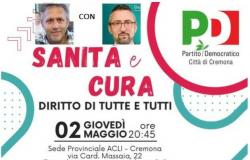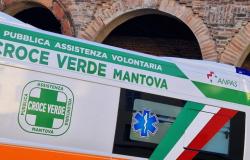The aim of the manifesto, presented to the Chamber of Deputies on the occasion of the 60th anniversary of the Foundation, is to promote full recognition of the rights of deafblind people. Schillaci: “With the approval of the measure on the recognition of deafblindness in the Council of Ministers, the Government has given a strong signal of attention and listening to the needs of deafblind people”
28 MAR –
A document in ten points which draws the attention of the institutions to the rights of over 360 thousand people with sensory and multiple visual and hearing disabilities and, at the same time, with motor limitations, whose overall estimate must however be seen towards high: minors under the age of 15 and people who have, in addition to sensory impairment, also an intellectual disability are excluded from the surveys.
This is the “Manifesto of deafblind people” presented by the Lega del Filo d’Oro ETS Foundation – Philanthropic Body to the Chamber of Deputies.
The institutional event, which kicked off the celebrations of the 60th anniversary of the Foundation, was attended by the Vice President of the Chamber of Deputies Hon. Giorgio Mulè and the Deputy Minister of Labor and Social Policies Hon. Maria Teresa Bellucci with institutional greetings which were followed by the introductory speeches, via video message, of the Minister for Disability the Hon. Alessandra Locatelliby the Undersecretary of State for the Economy and Finance Hon. Lucia Albano and the message from the Minister of Health Hon. Orazio Schillaci.
“The Lega del Filo d’Oro represents an invaluable resource in support of deafblind and psychosensory impaired people who, thanks to assistance, rehabilitation and education, can make progress towards greater autonomy. – underlines the Minister of Health Orazio Schillaci – with yesterday’s approval in the Council of Ministers of the measure on the recognition of deafblindness, the Government gave a strong signal of attention and listening to the needs of deafblind people. A very important result that goes in the direction of full recognition of the right to health.”
“Today the Lega del Filo d’Oro reaches another, fundamental, goal. On the eve of this celebratory day, a very important bill was approved for all deafblind people, which recognizes deafblindness as a unique disability, without discrimination between people with the same conditions developed at different ages. This significant step makes us look to the future with greater hope and lays the foundations for a more inclusive and respectful society” he declared to Rossano Bartoli, President of the Lega del Filo d’Oro Foundation – Our goal is to guarantee a better future for those who cannot see or hear and their families, who place their trust in us every day. We firmly believe, and we have had proof of this, that with the support of the institutions and the population as a whole, the current challenges can be overcome to create a more equal and accessible society”.
The new definition of deafblindness, which it is hoped can also be quickly approved by Parliament, underlines a note, marks a fundamental change of pace for deafblind people: “Having a definition that finally recognizes deafblindness, regardless of age, is crucial importance to fully guarantee the right to health and assistance of deafblind people, as well as to promote their real self-determination. The challenge of full recognition of deafblindness as a specific disability must not, therefore, be limited to a desired and necessary improvement in health and social care, but consists in translating the inclusion policies generally aimed at people with disabilities into fully enforceable rights for all deafblind people.”
The manifesto of deafblind people
Starting from the recognition of deafblindness as a unique disability, the Lega del Filo d’Oro, with the “Manifesto of deafblind people”, intends to identify some of the main barriers that prevent deafblind people of all age groups from being able to concretely enjoy their rights, asking the institutions to commit to:
Recognize as deafblind all people affected simultaneously by blindness and deafness, regardless of the age at which they develop these disabilities, updating Law 107/2010; Guarantee access to healthcare services outside the Region for all deafblind people and people with psychosensory disabilities who need specialist care; Promote a greater presence of LIS and LIST interpreters in public structures, especially in the healthcare sector; Promote the educational inclusion of deafblind children and young people in primary and secondary schools, through the training of staff and volunteers in the use and knowledge of Braille, LIS, LIST, Haptic and/or the most suitable communication system for the individual person; Promote the autonomous mobility of deafblind people through the training of assistance personnel in public transport, in particular railways and airports; Promote the full implementation of the so-called After Us Law (Law 112/2016), recognizing the role of the family caregiver (art. 1, paragraph 225, Law 205/2017); Promote the development of inclusive working policies; Promote forms of housing and cohousing for the specific needs of deafblind people and guarantee forms of assistance suited to the needs of elderly people; Promote the accessibility of institutional (and non-institutional) websites for people with psychosensory, auditory and visual impairments; Promote access to sport and culture for deafblind people and people with psychosensory disabilities by breaking down physical, sensory and cognitive barriers.
March 28, 2024
© All rights reserved
Other articles in Chronicles

















